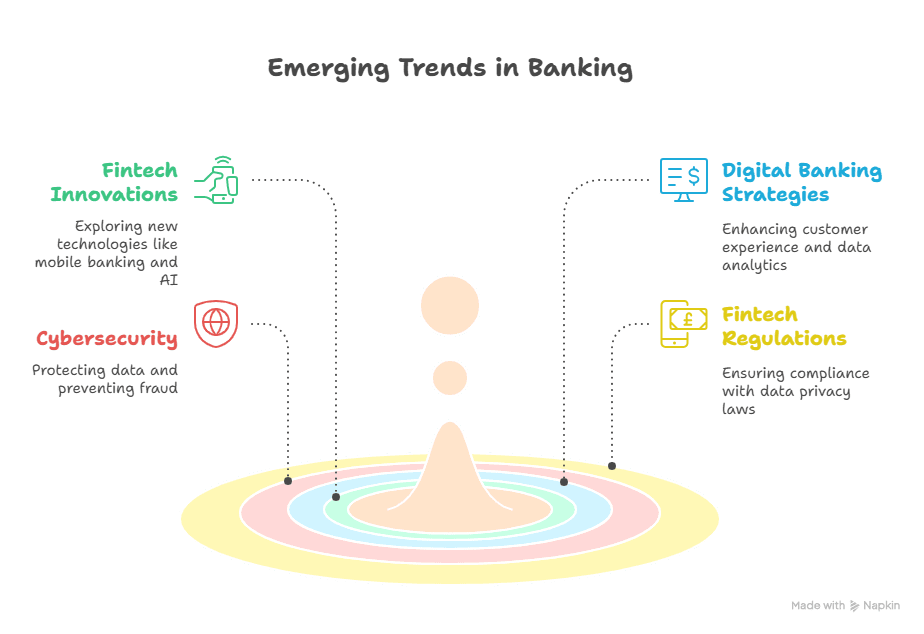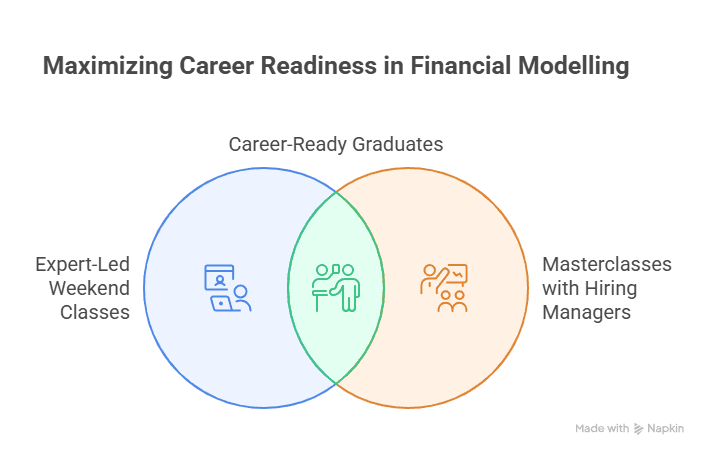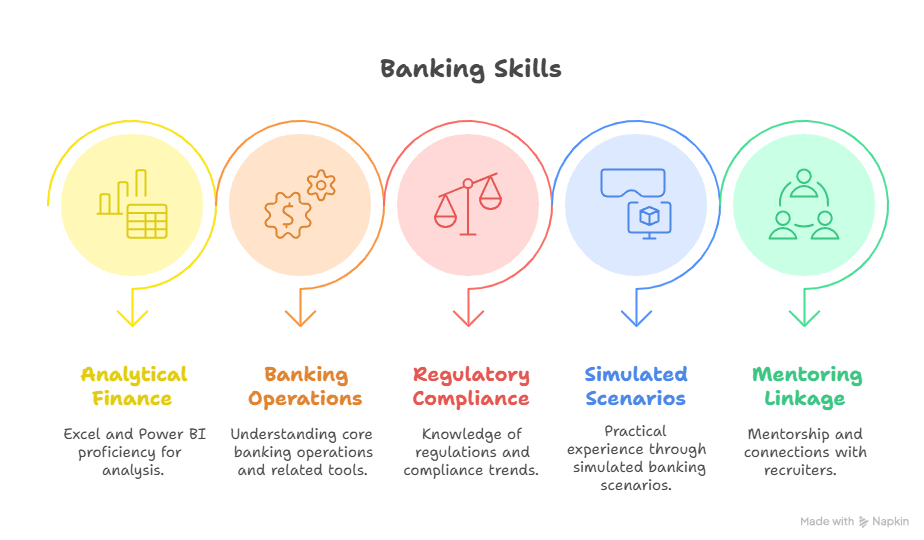Step 1: Understanding the Scope of a Banking Career
Banking is not only customer-facing. Banks globally employ thousands behind the scenes in investment banking operations, asset management, securities processing, and regulation compliance.
Finance career options for banking are:
- Investment Banking Associate: Supports deal structuring, mergers, and acquisitions.
- Wealth Management Associate: Delivers high-net-worth client accounts.
- Risk Management Consultant: Investigates and oversees financial risks.
- KYC Analyst: Ensures regulatory compliance for client onboarding.
- Collateral Management Analyst: Oversees risk of secured transactions.
There is an increasing demand for banking professionals across the entire world, especially those specifically trained in a particular field through job-specific banking courses.
Step 2: Meeting the Banking Course Eligibility
Most banking course eligibility criteria are straightforward:
- Degree in commerce, finance, economics, or business administration.
- 0–3 years of work experience (best for freshers).
- General financial market knowledge.
The Imarticus Learning CIBOP program, for instance, is aimed specifically at finance graduates or fresh professional entrants who want to enter investment banking.
Step 3: Selecting the Right Certification
While searching for investment banking certification courses, remember these:
- Industry Acceptance: Recruiters seek certifications from recognized issuers.
- Practical Syllabus: Experiential learning, case studies, and projects need to be incorporated.
- Placement Support: Job guarantee or interview guarantees need to be incorporated.
- Tool Mastery: Familiarity with trade settlement systems, compliance tools, and market software.
CIBOP stands out with:
- 100% Job Guarantee
- 7 interview assurances
- 85% placement rate with a highest salary of ₹9 LPA
- Securities operations, anti-money laundering, risk management, and wealth management course
Step 4: Building Core Skills Through Practical Projects
A good bank course would teach you skills that your actual employers want. CIBOP learns from real-life projects such as:
- Money Laundering Schemes: Identification of intelligent schemes of illegal transactions.
- Compliance: Translating rules into bank practices.
- Ethical Banking: Profits with a conscience.
- Trade-Based Money Laundering: Identification of fraud in trade transactions.
This experiential learning is designed such that you are not only exam-ready, but job-ready.
Step 5: Exploring Online Banking Programs
Online banking courses are convenient for students who cannot attend classes without any compromise on quality. The top online banking courses are:
- Interactive live sessions.
- Learning management system (LMS) access.
- Virtual case studies and simulations.
- Remote placement drive and interview practice access.
CIBOP offers hybrid formats, which combine online training with the instant gratification of instructor feedback.
Step 6: Maximising Placement Opportunities
Competencies matter, but success also hinges on the right opportunities. The CIBOP program has worked with over 1000 placement firms including international banks, investment houses, and fintech unicorns.
Placement Highlights:
- 85% placement rate
- 60% average salary increase for placed candidates
- Career guidance until you land in a placement
It is this type of support that all the difference between hoping to be in a job and actually being there.
Step 7: Mapping Your Career Growth Path
Once you complete your chosen banking cours The banking sector has always been a magnet for high-flying careerists looking for high-growth careers, high salaries, and global experience. Whether you want to be a career investment banker, risk manager, or wealth advisor, choosing an appropriate banking course can be the bridge between your study qualification and a rewarding career.
This outline will cover everything you need — from the professional prospects of a career to choosing the right investment banking course, fulfilling eligibility criteria for a banking course, and finding career-building banking courses like online banking courses. We will also brief you on the Certified Investment Banking Operations Professional (CIBOP) course — a proven model with a 100% job guarantee track record.

this is how your career can progress:
- Year 1–2: Freshers’ roles like Settlement Associate, KYC Analyst, or Process Associate.
- Year 3–5: Mid-level roles like Investment Banking Associate or Regulatory Reporting Analyst.
- Year 6+: Senior positions in global investment banking, hedge fund operations, or risk management.
With a job-focused banking course like CIBOP, the time is compressed with placements and job-ready training available.
Benefits of Choosing a Job-Oriented Banking Course
- Job-Specific Syllabus: Learn what the employers expect.
- Practical Training: Learn by doing, not reading.
- Global Exposure: International banking practices.
- Career Guidance: Resume building, mock interview, and recruiter networking.
Why Choose the CIBOP Program by Imarticus Learning?
Program Duration: 3 months or 6 months.
Mode: Online + Offline (hybrid option available).
Highlights:
- Awarded Best Education Provider in Finance (30th Elets World Education Summit 2024).
- Taught 12,000+ batches.
- Trained 50,000+ learners.
CIBOP is not a banking course—it’s a career booster that will catapult you into high-paying finance careers.
FAQs
Q1: What is the eligibility for a banking course?
A: Most bank course eligibilities typically require candidates to possess a graduate level degree in finance, commerce, economics, or related studies. Some courses, like CIBOP, accept candidates with experience of 0–3 years and is thus the ideal option for fresh graduates.
Q2: What will be my career after obtaining an investment banking certification?
A: Investment banking certification confirms your proficiency in compliance, financial analysis, and securities operations. It makes you a more credible applicant to recruiters and increases your chances of receiving an interview in high-end banking organisations.
Q3: Can banking courses be taken online?
A: There are several online courses, recorded courses, and project courses for online courses on banking. There are blended courses like CIBOP, for which live courses and career counseling with placement support are available.
Q4: Which of the banking courses specialising in careers offers 100% placement support?
A: Imarticus Learning’s CIBOP is a career-focused banking course offering 100% job assurance, guaranteed interviews, and placement support with over 1000 hiring partners.
Q5: What are the career opportunities in finance after a banking course?
A: Career opportunities such as Investment Banking Associate, Risk Management Consultant, Wealth Management Associate, KYC Analyst, and Regulatory Reporting Analyst can be achieved after studying a banking course.
Q6: Should I pursue a banking course for non-finance graduates?
A: While finance backgrounds take precedence, there are some banking courses that provide foundation modules for non-finance graduates to fill their knowledge gap before learning specialized subject matter.
Q7: How long do I need to wait for a job after taking a banking course?
A: Placement schedules differ, but with institutes like CIBOP, students typically achieve placements in graduation weeks due to committed placement teams and interview promises.
Conclusion
Selecting the appropriate banking course is not an academic choice only — it’s an investment in your future career. Employers today expect individuals who are capable of showing job-ready skills, industry insight, and real-world problem-solving capacity from day one.
By choosing a program like the Certified Investment Banking Operations Professional (CIBOP), you are mastering a decade-refined curriculum, honed and fine-tuned by industry professionals, and enhanced with real-world projects that mimic actual banking operations. More importantly, the 100% job placement guarantee and immediate access to a network of 1000+ hiring partners provide you with an unbeatable competitive edge in landing high-growth jobs.
No matter what your aspiration is, to enter investment banking, to be a head of risk management, or to become a career asset and wealth manager, this book equips you with the technical expertise, strategic skills, and networking ties you will need to achieve your objectives.
Your next career milestone doesn’t have to be years away — it can begin now. Take the first step, master the skills, and position yourself where the opportunities are. The world of finance rewards the prepared, and with the right banking course, you’ll be ready to claim your place. Enrol Now in the Imarticus learning’s CIBOP Course.






 What is the difference between a primary market and a secondary market?
What is the difference between a primary market and a secondary market?

 Investment Banking Analysts and Associates
Investment Banking Analysts and Associates
 Technology is shaping the future of banking and finance
Technology is shaping the future of banking and finance
